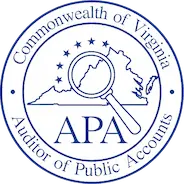 Online
Online
 Online
Online


Turn your UNRELENTING passion for numbers into a powerhouse career. Your future in finance starts here: 100% online.
My interest in this field stems from a desire to understand and improve financial systems, inspired by my work in the professional services and tax departments of a local accounting firm. The opportunities at VCU have equipped me with the knowledge and skills needed to excel and make meaningful contributions to both my profession and my community.“


Whether you’re building on experience or just starting out, VCU’s online Accounting degree gives you the tools to excel. Master the art of analyzing financial data, uncover trends, and make decisions with UNWAVERING confidence. With access to top-tier faculty, industry connections, and a global alumni network, this program doesn’t just prepare you for the job market. It sets you apart.
It’s time to elevate your career and make every number count.
This degree will:
Accountants examine and prepare financial records. There are several types of accountants.





Accountants manage and report a company’s financial data. They do this by ensuring financial records are accurate, calculating taxes, performing financial analysis, and auditing, among other responsibilities.
Accounting systems analysts determine the needs of clients and translate them into IT systems specifications. They evaluate hardware and software, give advice about IT infrastructure and analyze possible IT initiatives.
Auditors review financial records for accuracy and make sure companies are in compliance with laws and regulations.
Budget analysts help organizations plan and manage their finances. They analyze a company’s books and recommend ways to allocate resources to maximize profits.
Certified public accountants, or CPA’s, assist businesses in maintaining and improving their financial health and reporting procedures. They meet with clients to discuss current practices and financial needs, review financial statements and tax forms, and perform audits to ensure compliance.
A controller, or comptroller, oversees financial statements such as balance sheets, invoices, accounts payable, and accounts receivable. They also direct accounting managers and department operations.
Financial analysts assess projects and companies to decide if they are a worthwhile investment. They compile reports on businesses and present them to potential investors, review trends in turnover and profit and offer advice to employers.
Forensic accountants, or Certified fraud examiners (CFE), are accountants who analyze financial statements to determine if there are signs of criminal activity or fraud. They research financial records, write detailed reports and testify as expert witnesses.
Internal auditors evaluate a businesses’ expenditures and risks against the set standard. They are responsible for keeping the internal financial and accounting practices of a business in order.
Internal revenue agents work for the Internal Revenue Service (IRS) to plan and conduct tax examinations and make determinations on federal tax matters. The examinations may be in the field, with taxpayers and/or their representatives, CPAs or tax attorneys.
Tax examiners determine how much is owed in taxes and collect tax from individuals and businesses on behalf of the government. They work for the federal, state and local government.